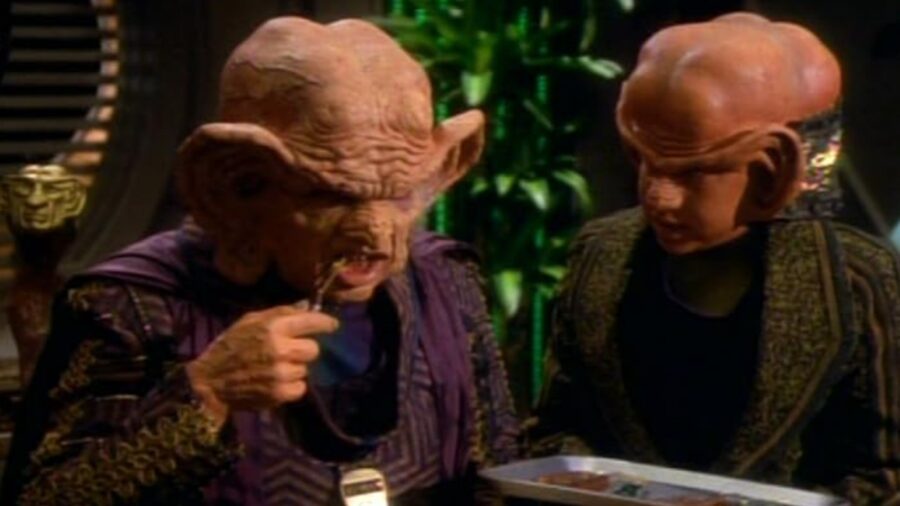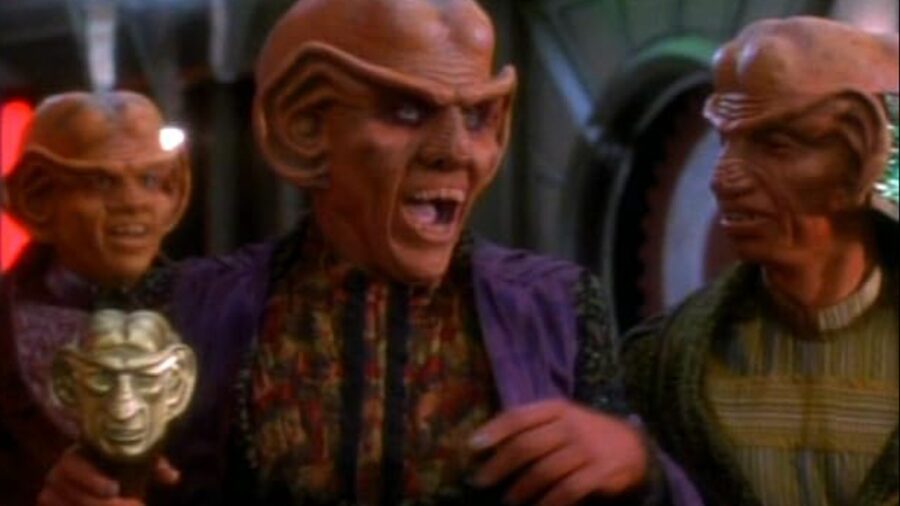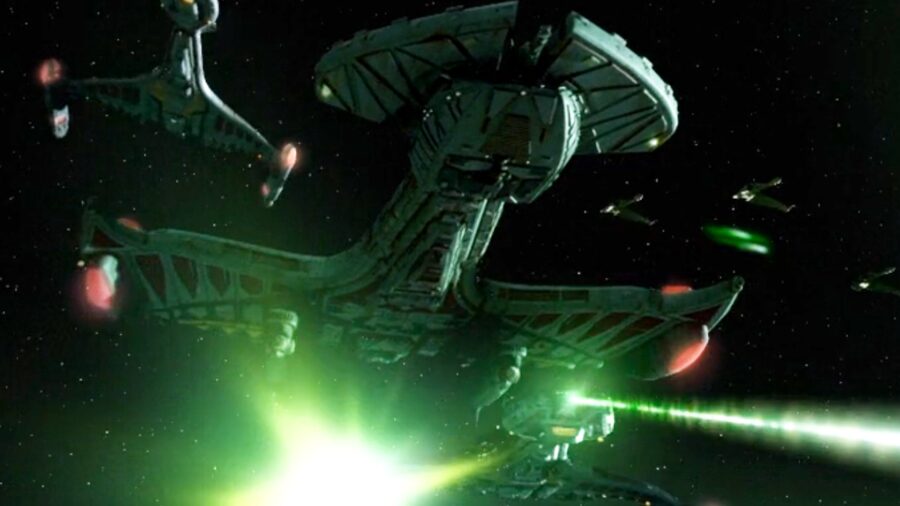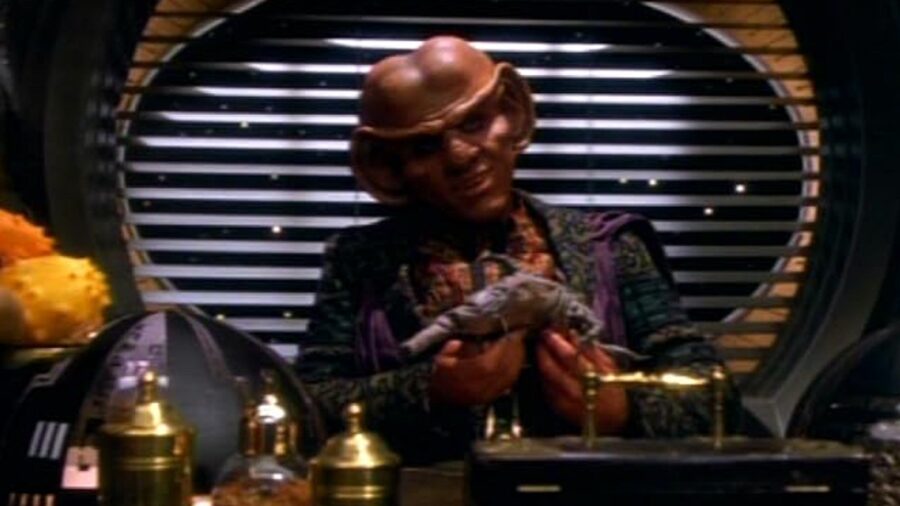Star Trek Showrunner Reveals The Hardest Part Of Writing Scripts

Most Star Trek fans have dreamed of what it would be like to write a script for their favorite franchise. However, Deep Space Nine showrunner Ira Steven Behr revealed that the most difficult thing about writing for Trek is the last thing you’d expect. In his notes about writing “The Nagus,” Behr noted that it was difficult figuring out who would and wouldn’t speak, as this seemingly minor decision could affect the budget in very significant ways.
Redefining The Ferengi

One of the reasons this was on the veteran Star Trek writer’s mind for this particular script is that “The Nagus” is a very chatty episode. It’s the first real Ferengi adventure of Deep Space Nine, and it introduces major concepts such as the Rules of Acquisition. The episode also introduced Wallace Shawn as Grand Nagus Zek, but this wasn’t the guest that had Behr sweating.
Guest Performers

When Behr was writing this Star Trek script, he was painfully aware that each individual line of the episode could potentially affect the budget. For example, guest performers had to be paid more if they spoke than if they didn’t. This is why shows like Deep Space Nine and The Next Generation have so many background actors who never say anything…even opening their mouths for a single line increased the cost of having them in the episode.
Dare They Speak?

Ira Steven Behr has always had a quirky sense of humor, and this was on full display when he discussed writing this Star Trek script. He said that as he wrote “The Nagus,” he constantly found himself asking questions like “dare he speak” and “dare they speak?”
It was a real writer’s paradox: dialogue from background characters helps make this sci-fi universe feel real and lived-in, but choosing who speaks and who doesn’t can alter the episode for the worse.
Phasers Vs. Words

Elaborating on his writing struggles, the future Star Trek showrunner discussed how adding dialogue often means removing special effects. As Behr put it, “dare I take out this optical so this person might be able to speak?” What he is referring to is the cost of optical effects, and those were particularly costly in an era before CGI had become mainstream.
For example, a well-known production fact of The Next Generation is that it costs about $10,000 to show a phaser blast onscreen. That may not sound like much, but each blast adds up, especially in an action-filled episode. Simply adding a blast or two might strip entire scenes out of a script, so Behr had to figure out whether to fill his own scenes with either great dialogue or great special effects, both of which the franchise is known for.
The Future Showrunner

Eventually, Ira Steven Behr became the showrunner for Star Trek: Deep Space Nine, and his intimate knowledge of how scripts affect the budget helped him become the leader this show needed. All these years later, he’s still helping us learn the answers to our biggest questions about the franchise. For example, you have an answer to why your favorite Trek extras never say anything: because the episode needed another cool special effect more than it needed another fresh face saying “yes, sir” to the captain.












